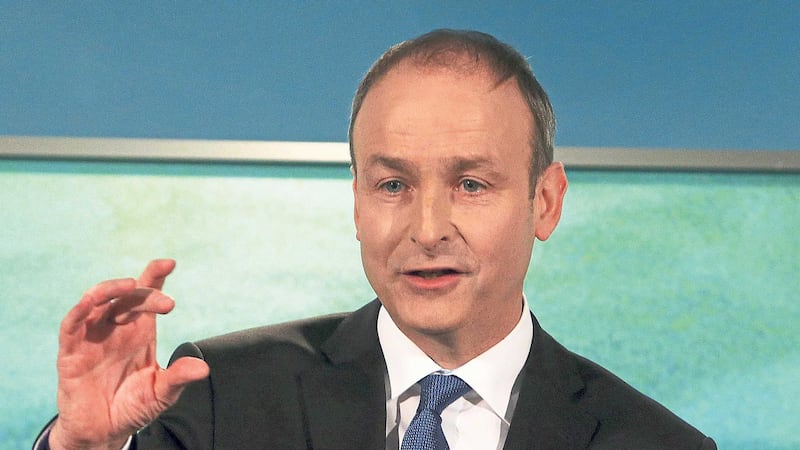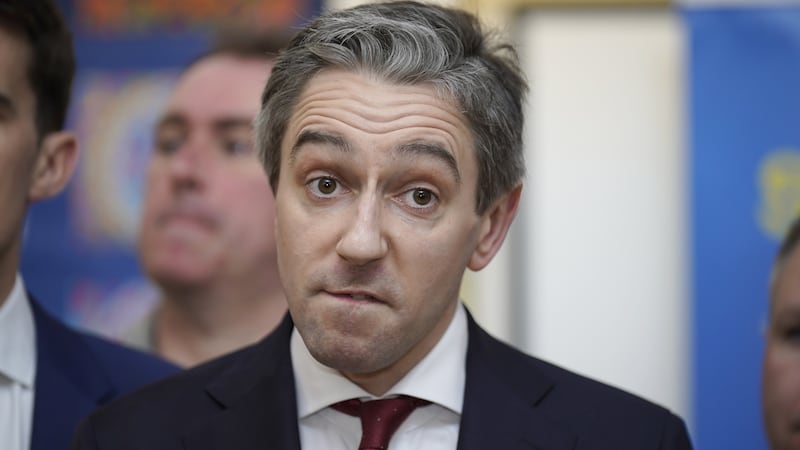Never mind what is happening in Rio - the Irish political Olympics are much more interesting.
Fine Gael, Fianna Fáil and Sinn Féin are going for gold in the race to determine who can best suggest what to do with our post-Brexit border. The prize is immense, because the winner(s) will form the next Dublin government.
In the days following the Brexit decision, the three parties engaged in a sort of political Rose of Tralee contest. United by common indignation, one danced, another sang and a third recited a poem. (It was a bit like the Lovely Girls contest in television's "Fr Ted", but without the satire.) Since it can be hard to judge a song against a dance, the competition evolved instead into one of those televised cookery contests.
That was when the border became culinary. We could have it hard, soft, medium rare, well done or burnt. (Well, maybe not burnt. They don't do that sort of thing anymore.)
But what began as a unified voice against Brexit has now developed into a serious outbreak of economic patriotism. Since patriotism ultimately means politics, the three main Dáil parties are now competing to personify post-Brexit Ireland. Welcome to the Olympic Mise Éire ("I am Ireland") contest to decide which party has captured the nation's economic soul.
Oh dear, you say, how sceptical. You have a point, but modern Irish history shows that when the border becomes an issue in southern politics, anyone who is not somewhat sceptical might not fully appreciate what is happening. The post-Brexit border arrangements certainly require negotiation, but it is hard to avoid the conclusion that the Dáil's big three are using the issue to manoeuvre for position as the next election draws near.
(The SDLP did not qualify for this year's contest, even though it was the north's representative in the Lovely Girls competition for years. Following the Brexit decision, it did denial really well and followed it up with some superb indignation, but in recent weeks it has lapsed into apparently prayerful silence.)
The favourite for the Mise Éire title is Fianna Fáil, the party of de Valera, who dreamed of an Ireland where the people would be "satisfied with frugal comfort" and enjoy "the contest of athletic youths and the laughter of happy maidens." (Some of his successors certainly implemented the bit about frugal comfort.)
Current leader, Micheál Martin, moved ahead of his political rivals this week by calling for a North-South "national dialogue", which would include stakeholders, such as farmers, business organisations and the wonderfully vague "civil society groups". (Do stakeholders include those who voted to leave the EU or do their beliefs preclude them from ever expressing another opinion?)
Surprisingly, Mr Martin said that his proposal could proceed without DUP support. Some saw that as an attempt to out-manoeuvre Taoiseach Enda Kenny whose plans for an all-island forum were rejected by the DUP. But it was also a move to put pressure on Sinn Féin. Can SF remain in political partnership with the DUP, while taking part in a national dialogue without the DUP?
("National" in that context means Irish, but since the Good Friday Agreement allows the DUP to designate themselves as British, they can legitimately engage in a different "national" dialogue. Nationalist acceptance of the two nations theory may now prove problematic.)
With elected representatives north and south, Sinn Féin is in a strong position to retain the Mise Éire title. It now has the chance to move centre stage on a popular political issue. However, it needs to seize the initiative soon, if it is not to be outflanked by FF on what we used to call "the national issue". Since economic uncertainty tends to shepherd voters towards more conservative parties, SF also faces the challenge of a swing towards Fianna Fáil in the next election
Despite being in government, Fine Gael is trailing in third place. It currently relies on Fianna Fáil support to survive, which means that FF will force an election when it feels confident of winning the Mise Éire title.
The next two years will, of course, require some significant work on the future of Ireland's economy, north and south. But with a huge electoral prize at stake, politics will not be far away, especially when discussing economic partition.
They may have taken the gun out of Irish politics, but since they did not take the border out of it, we can expect a return to some old-style politics dressed as economics. God bless the border. Where would our political Olympics be without it?









